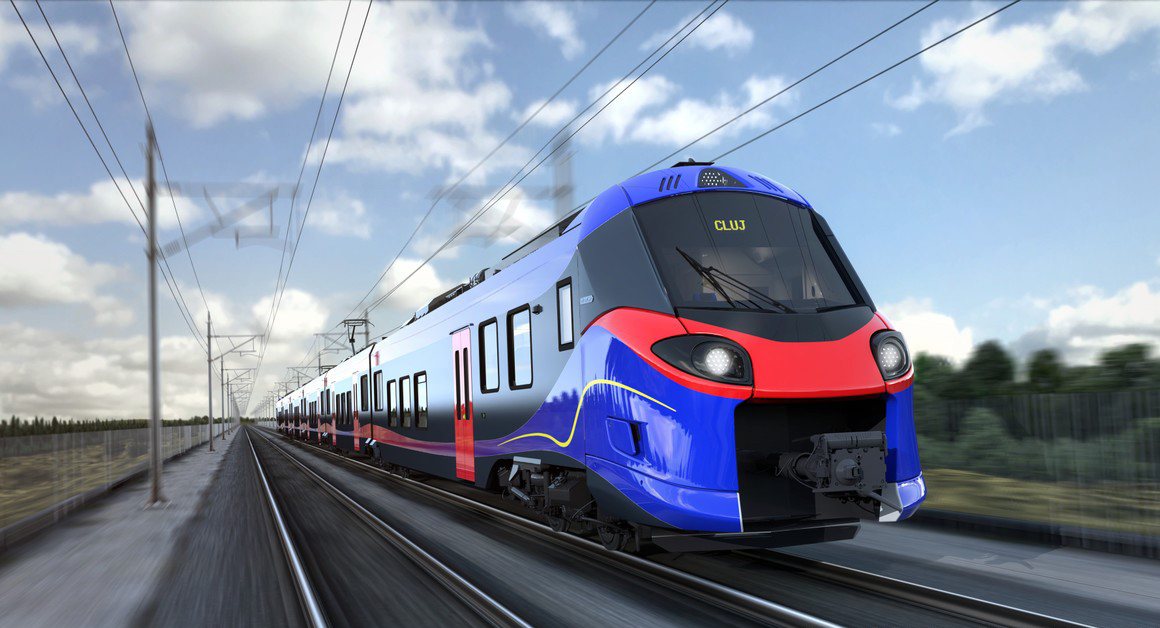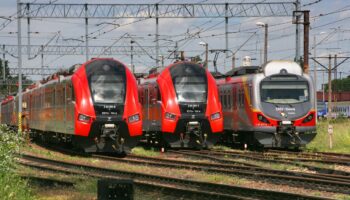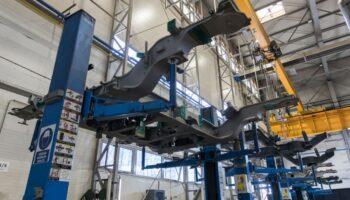Romania: Local rail reform authority ARF awarded Alstom a €270 mln contract to deliver 20 six-car Coradia Stream interregional EMUs and maintain them for 15 years. At the same time, the order was initially given to a consortium of local Astra Vagoane and CRRC, which already has designed and certified its train.
The contract between Alstom and ARF includes the option for the delivery and maintenance of other 20 EMUs. In this case, the total value of the contract may exceed €750 mln. The supply will be financed from the state budget.
Low-floor EMUs will be able to accommodate 350 passengers and accelerate to 160 km/h. The vehicles will also be equipped with a digital passenger counting system. The final interior design of the salons, as well as the color of the body, will be determined by ARF later. It is assumed that the trains will be distributed among several Romanian operators on the basis of contracts for the provision of transportation services. The EMUs must be delivered within 31 months from the date of signing the contract.
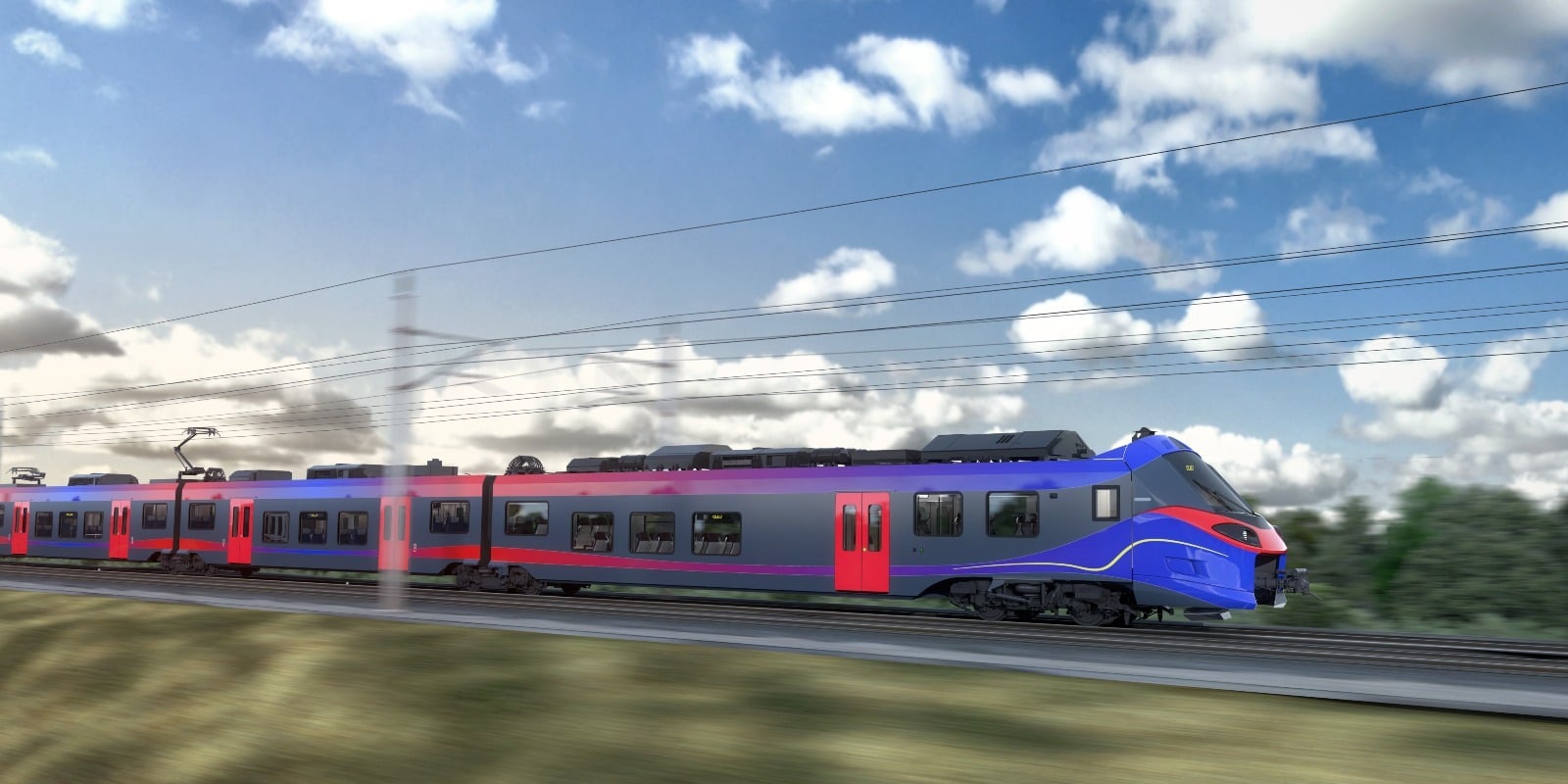 Render of the Coradia Stream EMU for Romania. Source: Alstom
Render of the Coradia Stream EMU for Romania. Source: Alstom
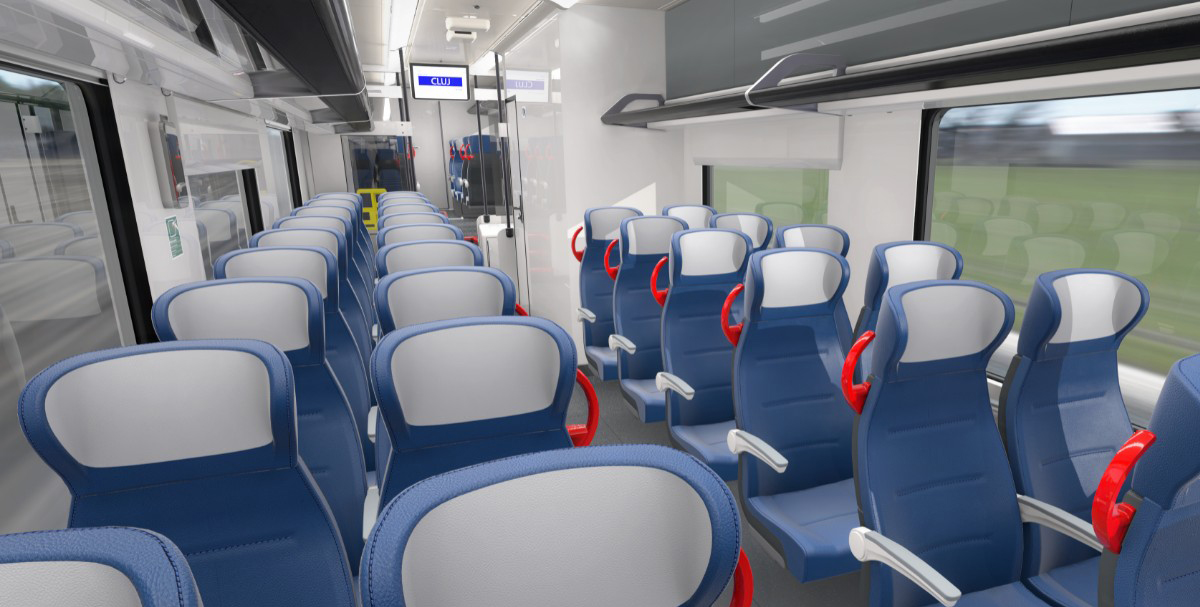 Interior renders of the Coradia Stream EMU for Romania. Source: Alstom
Interior renders of the Coradia Stream EMU for Romania. Source: Alstom
In the tender announced by ARF in April 2019, EU manufacturers and China’s CRRC competed fiercely. Initially, the purchase of up to 80 regional electric trains was announced, of which half was laid as an option. In July of the same year, it became known that Alstom, Siemens Mobility, as well as a consortium of CRRC and Astra Vagoane submitted their applications for the competition. Further, the tender was accompanied by a series of appeals, connected both with the disagreement of the participants in choosing the winner, and with two cancellations of the procurement.
Initially, CRRC was declared the winner (its proposal was 25-28% lower in cost and included shorter delivery deadlines than Alstom and Siemens), but after appeals by other bidders, the Bucharest court first ruled to re-evaluate the proposals, and then decided to cancel the auction. This decision was appealed to the Bucharest court and the tender resumed. In August 2021, ARF again cancelled the tender, citing the fact that the bids were not comparable with each other in terms of technical and financial proposals. Later, the tender procedures were again continued. In early March of this year, it became known that the appeals filed against the tender by CRRC, Astra and Alstom were considered by the EU court.
At the same time, CRRC developed and produced SFEMU-EU01 train specifically for participation in the Romanian tender. It passed the necessary trials and, in May 2021, the authorised certification body ERC issued an intermediate ISV certificate to CRRC as part of its compliance with TSI requirements. The manufacturer said it was considering selling the new trains to an unnamed private operator if it loses the Romanian tender.
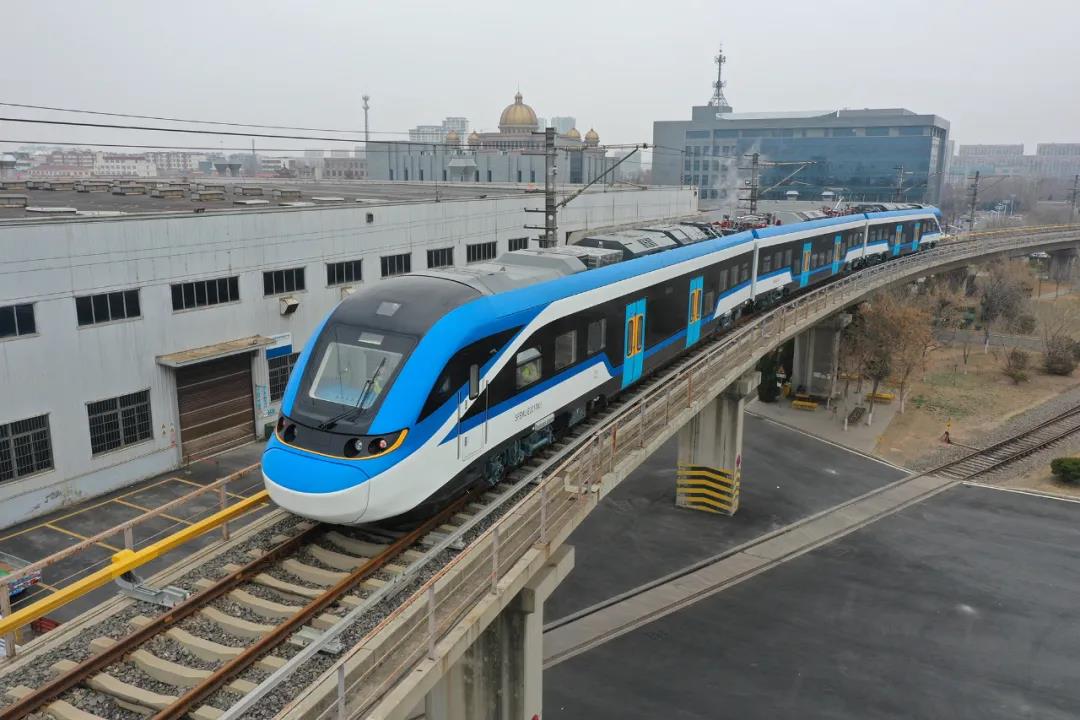 SFEMU-EU01 EMU by CRRC on trials in Austria in 2021. Source: CRRC
SFEMU-EU01 EMU by CRRC on trials in Austria in 2021. Source: CRRC
CRRC is pursuing an aggressive policy of expansion into foreign markets, including Europe, but the EU is trying to counteract this. Thus, in June 2021, the European Council decided to introduce an international procurement instrument (International procurement instrument, IPI), which gives the EU countries the right to exclude from participation in public procurement companies from countries that apply restrictive or discriminatory measures to European manufacturers, in particular, use government subsidies. This may lead to a complete refusal by the EU countries to purchase rolling stock from CRRC, which is a state-owned company.
To circumvent the current restrictions, the Chinese company is implementing the tactics of buying European assets. In May 2020, CRRC bought Vossloh Locomotives, which, according to SCI Verkehr, has supplied 25% of all diesel locomotives in Europe over the previous 5 years. Also, the mayor of Polish Poznan, Jacek Jaskowiak, in an interview with Forsal.pl reported that CRRC expressed a desire to buy the Polish tram manufacturer Modertrans (also, according to Polish media, two unnamed players from Europe are eager to purchase it).



